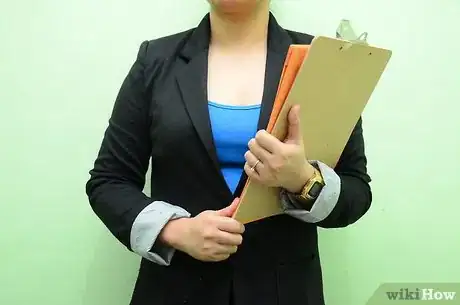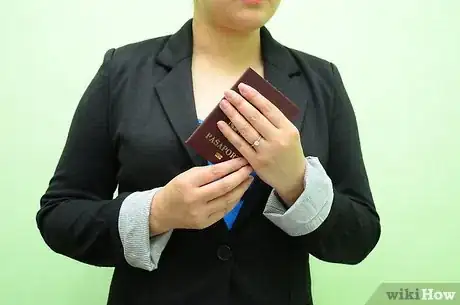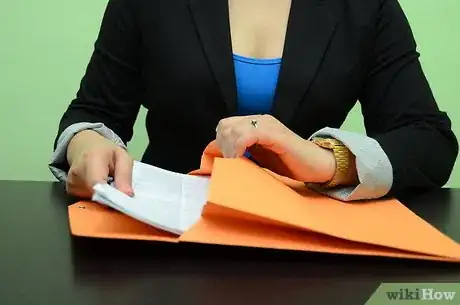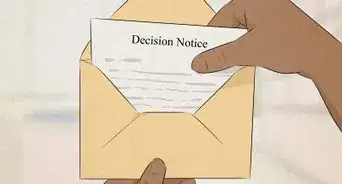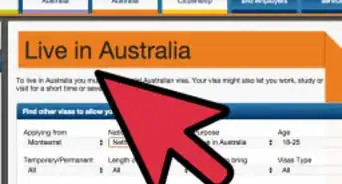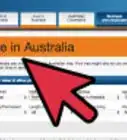This article was co-authored by wikiHow Staff. Our trained team of editors and researchers validate articles for accuracy and comprehensiveness. wikiHow's Content Management Team carefully monitors the work from our editorial staff to ensure that each article is backed by trusted research and meets our high quality standards.
There are 12 references cited in this article, which can be found at the bottom of the page.
This article has been viewed 73,024 times.
Learn more...
Working in Europe can allow you to enjoy a rich culture, travel extensively and gain broader work experience. Citizens of European Union (EU) countries can work freely within other EU countries, with some exceptions. If you are a non-EU citizen, then finding a job in Europe will involve obtaining a specific work visa. It is a good idea to research countries you would like to work in and gain training in a specialized skill that will make you more employable to foreign countries. Begin your research into European work from your home country and arrange your work permit or visa through the European country's immigration department. Find out how to work in Europe.
Steps
EU Citizen Work
-
1Determine if you are an EU citizen. Several new countries have been added to the EU over the years, so check this list, europa.eu/about-eu/countries/index_en.htm, to identify how easy it will be to work in other EU states.[1]
-
2If you are part of 1 of the original EU states, UK, Belgium, Iceland, Ireland, Netherlands, Luxembourg, Denmark, Germany, Italy, Portugal, Spain, Sweden, France or Finland, you should be able to work in an EU state without restrictions.
- If you are part of a newer EU state, or you wish to work in a newer EU state, check the work restrictions with that country. Many original states impose restrictions on workers from newly accepted EU states. They are required to reduce or eliminate restrictions after 7 years in the EU.[2]
Advertisement -
3Request a passport if you do not already have one. No matter your nationality, you should apply for a passport immediately by submitting a form, fees, photographs and fingerprints. If you have dual citizenship, review the EU list to see if you can take advantage of the working possibilities with a passport from an EU country.
-
4Search on the European Commission website for jobs, if you are an EU citizen. The European Job Mobility Portal, at ec.europa.eu/eures, lists job openings, tips for living and working in the country and other important information for getting a job outside of your EU country.
- Other sites may have better information about seasonal work. If you are looking for hospitality jobs, go to resortjobs.com or summerjobs.com to look for work.
- If you are looking for fruit picking jobs, you can look for seasonal positions at pickingjobs.com.
Non-EU Citizen Work
-
1Decide where you would like to work. You should identify areas that you may potentially be hired based on the languages you speak, your nationality and the job you perform. For example, if you speak English and French, you will want to look in those countries and Switzerland or Belgium.
-
2Decide how you would like to work. It is no longer very easy to travel to a country and apply for jobs while you are there. Most people should establish their training in their own country and apply for jobs or visas before going abroad.
-
3Get a degree in a discipline that is currently in demand in Europe. People with medical degrees, certain engineering degrees, entrepreneurs, investors and certain mechanics may be able to apply for an eased work permit or they may not be required to have a European work permit at all.[3]
- In the UK, investors,[4] entrepreneurs,[5] people with exceptional talent and some graduate students or graduate entrepreneurs can apply for a point-based visa system. For many of these categories, there are a limited number of visas, so make sure you apply early.
- Elsewhere in Europe, countries are either adopting a points-based system, like the UK, that awards a value based upon your skills and experience. This is a response to supplement the skills of an aging population. Many countries, such as Switzerland, specify that a company must sponsor a non-EU citizen. However, for certain positions, they may not be required to offer the job in their country beforehand.
-
4Search for international companies to sponsor your work visa. This is the most common path to get a skilled job in a European country, because your company will help you apply for the visa before you move. You can search for jobs by specific companies, or you can go online to job aggregate sites, like Monster, CareerBuilder and Indeed and look for jobs located in Europe.
-
5Get your TEFL certificate in your country.[6] Many domestic programs are cheaper and well respected in Europe. Visit websites like eslemployment.com, teachaway.com, languagecorps.com to begin researching positions in EU and non-EU countries.
- If you have an education degree, you can apply for work in international, military and immersion schools abroad. As well as applying online, you may attend international teaching job fairs to interview for a full-time position.
- If you are having trouble finding a full-time job, consider apply to be a camp counselor at an International Camp in Europe. Visit statravel.com/work-abroad-europe.htm to apply for a short-term position.
-
6Become an au pair. There are dozens of agencies that hire English-speaking people to be au pairs for at least 3 months in Europe. You must be at least 18 years of age with some experience taking care of children.
-
7
Community Q&A
-
QuestionWhat is the easiest way to get a work visa in Europe?
 Community AnswerRequest a residence visa to study, or if you have family there, you can live with them to make it easier to apply for the work visa.
Community AnswerRequest a residence visa to study, or if you have family there, you can live with them to make it easier to apply for the work visa. -
QuestionCan I become an au pair at any age?
 Community AnswerNo. You must be 18 years or older because you need to be an adult to care for minors.
Community AnswerNo. You must be 18 years or older because you need to be an adult to care for minors. -
QuestionHow do I work in Europe if I am not an EU citizen?
 Community AnswerFollow Method 2.
Community AnswerFollow Method 2.
Warnings
- Never outstay your temporary visa.[9] If you are required to leave in order to apply for a new permit or visa, you must abide by the rules, or your permit is likely to be denied. You can be barred from working or living in a country if you do not follow the strict immigration rules.⧼thumbs_response⧽
Things You'll Need
- Passport
- Work permit
- The European Job Mobility Portal
- Foreign language skills
- Skilled worker experience/degree
- Company sponsorship
- TEFL certificate
- Au pair agency
References
- ↑ https://europa.eu/european-union/about-eu/countries_en
- ↑ https://ec.europa.eu/social/main.jsp?catId=466&langId=en
- ↑ http://www.cedefop.europa.eu/en/news-and-press/news/skill-shortages-europe-which-occupations-are-demand-and-why
- ↑ https://www.gov.uk/government/publications/points-based-system-tier-1-investor
- ↑ https://www.gov.uk/tier-1-entrepreneur
- ↑ https://www.goabroad.com/articles/tefl-courses/steps-to-getting-tefl-certified
- ↑ https://ec.europa.eu/immigration/
- ↑ https://europa.eu/youreurope/citizens/residence/documents-formalities/eu-nationals-permanent-residence/index_en.htm
- ↑ https://www.schengenvisainfo.com/news/consequences-of-overstaying-in-schengen-area/
About This Article
If you are a citizen of the European Union and want to work in Europe, you should be able to work in an EU state without restrictions as long as you have a passport and are from one of the original EU states, including the UK, Belgium, Iceland, Ireland, the Netherlands, Luxembourg, Denmark, Germany, Italy, Portugal, Spain, Sweden, France, and Finland. However, if you are from or want to work in a newer EU state, you'll need to check the work restrictions with that country, since the original EU states can impose working restrictions on new states for their first 7 years. When you're ready, look for jobs in countries where you know the language and consider using an international company to sponsor your work visa. For more advice, like how to increase your chances of finding a job in the EU, scroll down!

